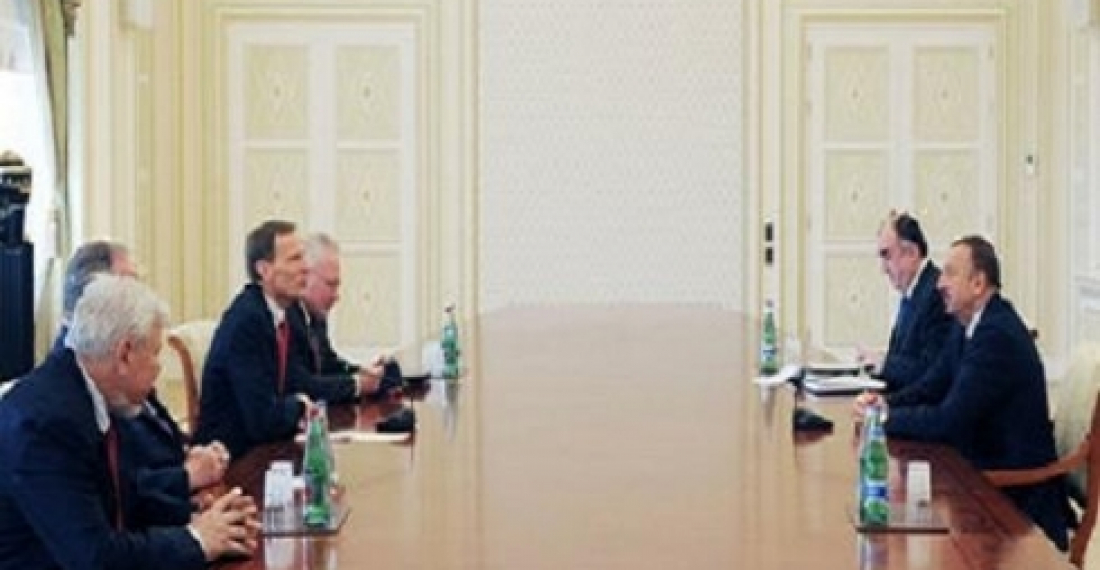The OSCE has issued a statement following the visit of the OSCE Minsk Group co-Chairmen to the South Caucasus.
According to the statement the Co-Chairs of the OSCE Minsk Group (Ambassadors Robert Bradtke of the United States, Igor Popov of the Russian Federation, and Jacques Faure of France) and Ambassador Andrzej Kasprzyk (Personal Representative of the OSCE Chairperson-in-Office) traveled May 11-14 to Yerevan and Baku, where they met with Presidents Sargsian and Aliyev to discuss the most recent efforts to resolve the Nagorno-Karabakh conflict.
The statement adds: The Co-Chairs continued their discussions with the sides on how to implement the commitments made by Presidents Aliyev and Sargsian in their January 23 joint statement in Sochi, including to "accelerate" reaching agreement on the Basic Principles as a framework for a comprehensive peace settlement, to work on the mechanism to investigate ceasefire violations, and to develop humanitarian contacts. The Co-Chairs expressed their concern over recent incidents along the frontlines, and urged the sides to exercise restraint and refrain from retaliation. The Co-Chairs welcomed the sides' reaffirmation of their commitment to seek a peaceful settlement.
The Co-Chairs also discussed with the sides the development of confidence-building measures in the military and people-to-people spheres to enhance trust and strengthen implementation of the 1994 ceasefire. In addition, the Co-Chairs discussed the importance of assessing and preserving at-risk sites of Armenian and Azeri cultural and historical value, in order to protect the shared heritage of the region's peoples while negotiations continue toward a final and lasting peace.
The Co-Chairs plan to continue discussions with the Foreign Ministers of the two countries in the near future."
Commonspace.eu political editor said in a comment "The Minsk Group diplomats are desperately trying to remain relevant at a time when the peace process is clearly stalled, and with the danger of increased tension on the line of contact seperating Armenian and Azerbaijani forces. The diplomats are hoping to maintain some momentum around the negotiations until such a time as their political masters decide to get engaged again directly. The Russian leadership at the moment has its hands full with a number of domestic matters and neither the US nor France is willing to get involved further at this stage. So the visit was a holding operation with no signs yet of any new ideas."
source: commonspace.eu with www.osce.org
photo: President Ilham Aliev with the Minsk Group diplomats in Baku on 14 May 2012.







